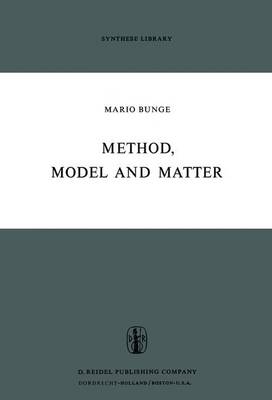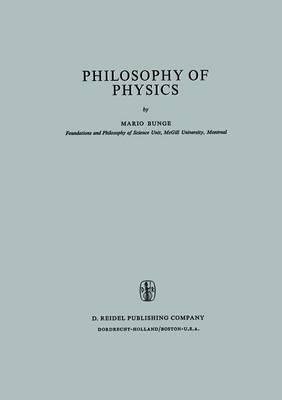Synthese Library
2 primary works
Book 44
This collection of essays deals with three clusters of problems in the philo sophy of science: scientific method, conceptual models, and ontological underpinnings. The disjointedness of topics is more apparent than real, since the whole book is concerned with the scientific knowledge of fact. Now, the aim of factual knowledge is the conceptual grasping of being, and this understanding is provided by theories of whatever there may be. If the theories are testable and specific, such as a theory of a particular chemical reaction, then they are often called 'theoretical models' and clas sed as scientific. If the theories are extremely general, like a theory of syn thesis and dissociation without any reference to a particular kind of stuff, then they may be called 'metaphysical' - as well as 'scientific' if they are consonant with science. Between these two extremes there is a whole gamut of kinds of factual theories. Thus the entire spectrum should be dominated by the scientific method, quite irrespective of the subject matter. This is the leitmotiv of the present book. The introductory chapter, on method in the philosophy of science, tackles the question 'Why don't scientists listen to their philosophers?'.
Book 45
This book deals with some of the current issues in the philosophy, methodology and foundations of physics. Some such problems are: - Do mathematical formalisms interpret themselves or is it necessary to adjoin them interpretation assumptions, and if so how are these as sumptions to be framed? - What are physical theories about: physical systems or laboratory operations or both or neither? - How are the basic concepts of a theory to be introduced: by ref erence to measurements or by explicit definition or axiomatically? - What is the use ofaxiomatics in physics? - How are the various physical theories inter-related: like Chinese boxes or in more complex ways? - What is the role of analogy in the construction and in the inter pretation of physical theories? In particular, are classical analogues like those of particle and wave indispensable in quantum theories? - What is the role of the apparatus in quantum phenomena and what is the place of measurement theory in quantum mechanics? - How does a theory face experiment: single-handed or with the help of further theories? These and several other questions of the kind are met with by the research physicist, the physics teacher and the physics student in their everyday work. If dodged they will recur. And a wrong answer to them may obscure the understanding of what has been achieved and may even hamper further advancement. Philosophy, methodology and foundations, like rose bushes, are enjoyable when cultivated but become ugly and thorny when neglected.

